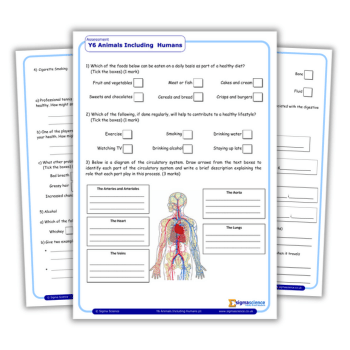Children Are Facing Tests That Are Too Hard, Too Often

It’s imperative that we understand how children are progressing, but this shouldn’t ever be at a detriment to a child’s wellbeing, or indeed, a teacher’s

- by Romy Short

Primary assessment has always been a difficult subject to broach – regardless of which side of the debate you are on.
The question of how we test our youngest is more important than ever, and many parts of the country face school literacy and numeracy challenges.
The PISA results last year reignited the debate on education standards within a globalised world, not least, in this country, which has long prided itself on being home to some of the most renowned educational institutions.
To add to this, radical reforms to primary assessment, spanning reading, writing and maths, designed to reflect the revised national curriculum in 2014, have created something of a perfect storm.
In response to this heady political climate, the Education Select Committee announced an inquiry that would look into the impact of these reforms, which revealed some worrying trends in how we assess young people and laid bare the stress placed on both teachers and pupils.
Children are facing tests that are too hard, too often, while teachers are suffering from a lack of guidance and an overbearing workload. Assessment is an important concern for teachers and parents alike, but striking the balance between testing as a barometer of progress, and testing that exposes students to unhealthy levels of stress is something at which we could do better.
With education challenges persisting in parts of the UK, it remains imperative that we understand how well children are progressing. But this shouldn’t ever be at a detriment to a child’s wellbeing, or indeed, a teacher’s.
It is now time that we reassess the types of testing we employ in primary schools. Rather than ranking students or schools, formative assessments measure how far students have progressed, and earmarks ways to improve. The removal of high-stakes testing both reduces stress and makes learning more enjoyable, which has positive outcomes for student and teacher wellbeing but for performance too. Supercharging formative assessment with technology is also a way to bring education to the 21st century. Harnessing the power of data from education technology allows teachers to gain an accurate picture of how a child progresses over time, locate pinch points in their areas for intervention and understand which areas to focus on.
We have also seen, in recent studies, how tech can engage young children more than the good-old-fashioned pen and paper can. Children get inspired and motivated when faced with intuitive software that responds to their learning needs. And it’s not just teachers and children that benefit from this type of assessment, but the librarian too. With school libraries under threat, embracing formative assessment technology could be a much-needed solution to this lingering problem.
Such technology empowers librarians to develop an understanding of a child’s needs based on data from formative assessment, allowing them call on their extensive literary knowledge to tailor their recommendations to each child. Throughout the election we saw all of our public services, including education, catapulted to the fore of public debate, so we must use this opportunity now to sit up and head these timely warnings of the Education Select Committee.
This issue goes beyond party politics and political hue, piquing interest on both sides of the House – as the composition of the Education Select Committee has shown.
Our children are the future, and in order to realise their potential we must be brave in embracing that future. Using technology in rethinking our approach to assessment is a start.
Romy Short is assessment director at Renaissance Learning.










